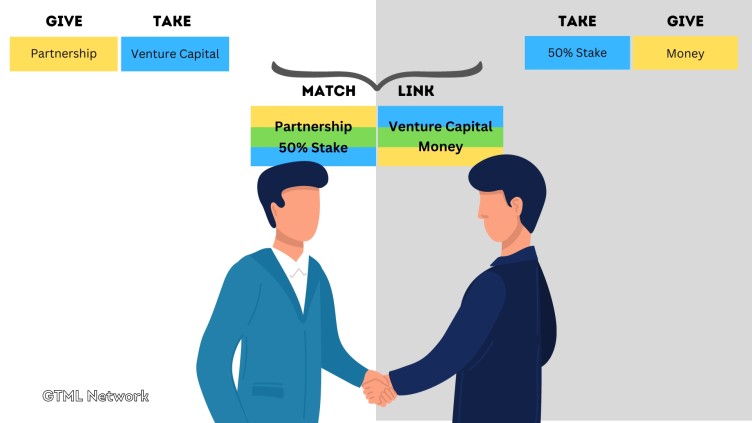Image by pikisuperstar on Freepik
Working in a professional environment means dealing with a wide range of personalities, and sometimes it can be difficult to navigate interactions with colleagues who may prove to be challenging. These challenging colleagues can create a toxic work environment, making it hard to be productive and feel comfortable at work. However, there are several ways to deal with difficult colleagues and maintain a positive work environment.
Identify their “Type”
Often, difficult colleagues are of different types, such as being overly critical, dismissive, rude, unprofessional, passive/aggressive, or even abusive. Some will never talk to you and there will be others who will constantly nag you to help on their trivial and stupid problems. There are also those type of colleagues who only take and keep taking from you and the others. They will squeeze you out of your time and efforts and never give you back anything in return if you ask them a favour one day. Identifying that specific behavior that makes them challenging to work with is crucial in finding an effective solution. Once you have identified their specific type, you can then figure out the best way to approach them. Dr. Rick Brinkman and Dr. Rick Kirschner, in their top seller book, “Dealing with People You Can’t Stand” have mentioned 13 different types of Difficult People: The Tank, The Sniper, The Grenade, The Know-It, All, The Think-They-Know-It-All, The Yes Person, They Maybe Person, The Nothing Person, The No Person, The Whiner, The Judge, The Meddler, and The Martyr. They step by step lay out the outlines of these people and the best ways to deal with them. Grab your copy to master in this topic.
Make them “Easy”
How do you extinguish a fire? With another matchstick or a with a spray of water? Of course, you would say water. But what if I tell you that in reality, you always use a matchstick. When there are workplace conflicts, colleagues usually tend to raise their attitude, stop talking and cooperating with you, exercise their power if they are senior for you or simply spark a “me too movement” if they are so called feminists. They think that the best way to tackle a conflict is to get defensive and start a war. However, the truth is, what you usually do after a conflict is the worst thing you can do to resolve that very conflict. Don’t raise your temper, don’t show your attitude, don’t stop talking to that person after the conflict. Instead, do the opposite what your ego always tells you to do. Take them out to a lunch, spend some time with them outside the office, do some random chit chat, maximise talking on personal topics and minimise the official small talks. Be the first to lend your hand for friendship. Soon you will find that they were never that difficult as you perceived so. I personally use this tactic and this ends my efforts to deal with difficult coworkers.
Be the “Master”
I’m the master of my sea, oh oh.. No, I am not singing the Believer. But I am telling you how I deal with difficult coworkers by being the master of my work domain. Strive to become the only person in your office to whom all your colleagues turn to whenever and wherever they are stuck. Your name should be the first and the last one they would utter when they run into any problem related to their project or work. Be so good that they can’t ignore you. Be such an irreplaceable resource that if they ever stop talking to you, their work at office becomes difficult day-by-day. Not because you start becoming the difficult one for them, but because that resource becomes difficult which they seek out in the times of hard office situations. Let them realise that there is nobody else like you to whom they can turn to with significant confidence. Nobody likes to make their relation difficult with a person who has the ability to make their life easy. Be that resource by becoming the master of your work, and be a resourceful colleague. No, I am not saying to donate your life to please them or to live and die for them. Nobody appreciates a “Yes Person” or a “People Pleaser” either. They just use them as a tissue paper and dump once everything is settled. Rather, what I am suggesting is to have such a mastery on your work without giving any sh*t to others that it becomes extremely difficult for your colleagues to behave difficult towards you.
If all the above fails
This won’t happen, but if your coworker is from the other planet and all of the above fails to help you, then the last resort is as follows.
Stay Professional: Ignore them and avoid being drawn into arguments or reacting negatively. Instead, respond calmly and respectfully, even if they are not reciprocating the same behavior. Avoid responding to their negativity with negativity, and do not stoop to their level. Keep in mind that you are in a professional environment and that you should conduct yourself accordingly. Maintaining a professional demeanor will help you diffuse potentially volatile situations and ensure that you do not become part of the problem.
Set Boundaries: If a colleague is consistently crossing the line, it is essential to set clear boundaries on what is acceptable behavior. Be clear about your expectations and communicate them assertively, without being aggressive. If necessary, involve your manager or human resources to help set and enforce boundaries. Setting boundaries can help you protect your well-being and ensure that you are not subject to undue stress and negativity in the workplace.
Document Incidents: If a difficult colleague’s behavior becomes too much to handle, it may be necessary to document incidents to protect yourself. Document any incidents of unprofessional behavior, including dates, times, and details of the interaction. Keep a record of any emails, text messages, or other communications that demonstrate the behavior. This documentation can be used as evidence if you need to escalate the situation to management or human resources.
Seek Support: Dealing with difficult colleagues can be emotionally draining, so it is essential to seek support when needed. Talk to a trusted colleague or mentor about the situation, and get their perspective. They may have experienced similar situations and may be able to offer advice or guidance. If necessary, seek support from human resources or a therapist to help you manage stress and maintain your well-being. And keep visiting the ideaVerse to make your work-life easier than everybody others.x




